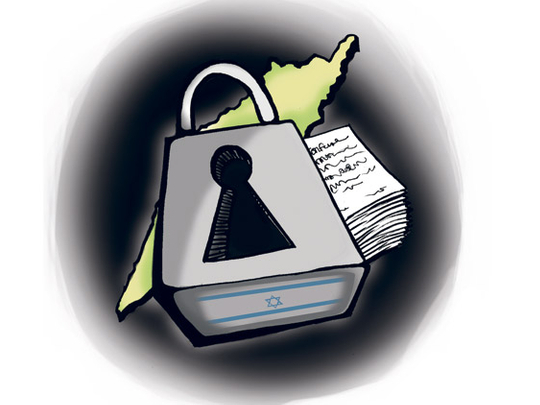
During the war of 1948, Syrian Interior Minister Sabri Al Asali appeared before Parliament in a pre-emptive move, revealing minutes of secret talks between Syrian nationalists and Zionist leaders back in 1936.
The Syrian negotiators, who were all in senior posts by 1948, feared that the Israelis would unilaterally reveal details of these talks in order to embarrass Syria's top leadership during the Palestine War. With nothing to hide they came out clean on their own.
Last week, the exact opposite happened in Israel when Prime Minister Benjamin Netanyahu signed off prolonging confidentiality of national archives related to events before, during, and after the war of 1948.
Anything related to the early years of the Zionist state and its relationship with the Palestinians will therefore, remain classified until 2018.
The timing of the ban is not accidental, as Palestinian negotiators head off to Washington DC for very controversial peace talks related to borders, security, occupied Jerusalem, and the right of return of millions of Palestinians.
Many of these issues are deeply rooted in Palestinian-Israeli history. The Palestinians will arrive in the US carrying the same files they have been transferring from one world capital to another for more than 20 years, containing maps, land registration documents, photos, and copies of numerous UN Resolutions related to the Palestinian cause.
If anything, placing a lid on official documents ahead of the upcoming talks — and sealing it tightly for another decade — tells volumes about how uneasy Israel is about its recent past, and how unwilling it is to hammer out a real deal with the Palestinians, related to all current and historical problems with them.
Not ready to reconcile
Psychologically, Israel is not ready for reconciliation with the Palestinians and nor is Netanyahu — the same Netanyahu who ceded limited control around Hebron back in 1997 and famously regretted any concessions he had made.
Palestinian President Mahmoud Abbas will on Thursday in Washington hold talks with Netanyahu under US Secretary of State Hillary Clinton's watchful eye. Everybody seems in a hurry, given that at midnight on September 26, a 10-month Israeli freeze on colonies will come to an end. If colony-building continues, Abbas has threatened to walk out on the talks.
For obvious ideological reasons, Hamas is opposed to these talks and is expecting a speedy collapse.
Hamas affiliated journalists are forcefully opposed to the talks, arguing that no deal can be reached so long as Abbas represents — at best — only 50 per cent of the Palestinians, with Gaza still under the control of Hamas. Additionally, no deal is possible so long as the siege of Gaza continues.
Abbas, no doubt, has a major problem when it comes to legitimacy and Netanyahu realises that it is very difficult — but not impossible — to make peace with the Palestinian president.
The leaders of Hamas know that but fear that by appealing so strongly to the Americans, Abbas is effectively drowning all pragmatism shown by them since 2009, while granting himself his final life jacket with the world community.
Hamas' acceptance of the borders of 1967, its welcoming of US mediation in the peace process, and its decision not to oppose the Arab Initiative of the Beirut Summit, are all aimed at projecting it as a new interlocutor for the Americans — a substitute to Fatah.
Abbas, with a strong mandate from the US, is taking action that re-brands him as the ultimate representative of the Palestinians, at least for now. Anything he signs in his final months as president, whether flawed or not, will become official — forcing whoever succeeds him, to respect and abide by or face isolation in the international community.
Should they succeed — no matter how feeble the chances — these talks would be as abiding for the Palestinians as Oslo, which is something that Hamas will curtly refuse. Given that its leaders plan to overtake the upcoming parliament and eventually the Palestinian presidency as well, they are trying to break any deal before it happens, so as not to go through the burden of wrecking it after they are elected to power in a unified Palestinian state.
Sami Moubayed is editor-in-chief of Forward Magazine in Syria.











